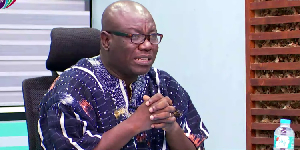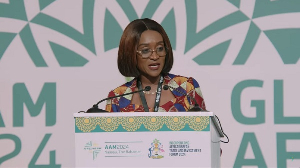: Part I
My brothers and sisters, the state acts as the father always attempting to provide the needs of all. Even in the so-called capitalist economies, the states frequently intervene to counterbalance individual interest with that of the general public, particularly the populace. The situation is the now the reverse in Ghana. Maybe, this is in full realization of the President’s reverse gear.
Today’s write-up focuses on one of two issues that show how the state is neglecting its long-established responsibilities. The first one is the attempt to privatise our roads outright without any due considerations of both legal and moral factors. The downright privatization of our roads is exemplified by the unilateral decision of the authorities of the University of Ghana (UG) to introduce tolls on roads that are public-constructed, public-owned and public-maintained. Whilst the university community, ranging from lecturers to students, are impatiently waiting for the least opportunity to demonstrate their resentment at the issue, the Ministry of Roads and Highways, sorry the Minister, impulsively announced that all other communities could fix their roads and charge tolls.
Events and reactions from the Ministry of Highways and for that matter the government undoubtedly showed that what the Minister said evidently manifested his limited knowledge about governance. For example, in follow-up article titled Roads Ministry to meet UG management over tolls (http://www.citifmonline.com/index.php @ 20/01/2014), the same Minister, Alhaji A.A. Sulemana, said that the government was consulting the university authorities to see how it could absorb the cost of the ‘maintenance’ of the said roads. The Minister claimed that the move was intended to calm nerves following the announcement of the decision by the university authorities to charge the tolls.
This second claim was misconstrued because UG had made this idea known much earlier, but almost every person within the university community knew very well that the implementation of the policy will be met with fierce resistance and if possible immediate revocation. The university authorities themselves had sense this danger. But to legitimatize their illegal action, the authorities succeeded in using the susceptible Roads and Highways Minister not only to revivify but also to announce their plan on a national scale. To put the records straight, I want the Hon Minister to know that it was his hesitant endorsement and announcement of the illegally intended tolls that generated public controversy because everyone except him (the Minister) knew that the university authorities could never implement the road tolls. If the government could possibly absorb the maintenance cost, why should the Minister be the first to suggest that the already-overtaxed public should pay it?
The other issue which showed the Minister’s limited understanding of governance was that he earlier said the roads of UG are not maintained by public funding (http://newspic.info/ghana/roads-minister-fix-your-roads-and-charge-tolls/ @ 17/01/2014). Just to remind this Minister, I put it to him that UG is a public university and being a public university means it is public-funded. Public institutions can never commercialize some of their operations without legal backing. Thus, what the good people of Ghana were expecting the Roads and Highways Minister and his government to do was to first query UG for contracting a loan (also illegal) to maintain the roads without the due consultations. Where is the evidence that the university authorities actually contracted a loan for the maintenance?
Perhaps, the President would have served Ghana better by restricting the said Minister who is also the MP for Sissala West solely to his parliamentary duty. At parliament, the MP would learn much about state institutions and their operations before qualifying to hold a ministerial appointment. (Oh! The said MP is an ex-Upper West Regional Minister. Then the President needs to rethink about keeping him there.)
On the default commercialization of our roads as prematurely announced by the sector Minister, the question that is yet to be asked or answered is, ‘Who will supervise the fixing of the roads to ensure that it is properly done before the tolls are then collected?’ Because the privatization is a profit-oriented venture, it is doubtless that only the businesspersons who can finance such projects will solely determine the toll rate as well as its adjustment. If so, what kind of state are we building? Perhaps, a chaotic one in which on a single badly fixed and ill-maintained road, one can pay tolls up to a 100 times before getting to one’s destination.
A responsible government— probably mentioned in the Better Ghana Agenda but yet to be actualized—is one that will jealously source funding from any part of the world solely for the purpose of fixing roads. And an irresponsible government is one that will expect its citizens, already overburdened with fuel price hikes, to fix their own roads.
Written by: Prince Justice Ali.
Opinions of Tuesday, 28 January 2014
Columnist: Ali, Justice


















